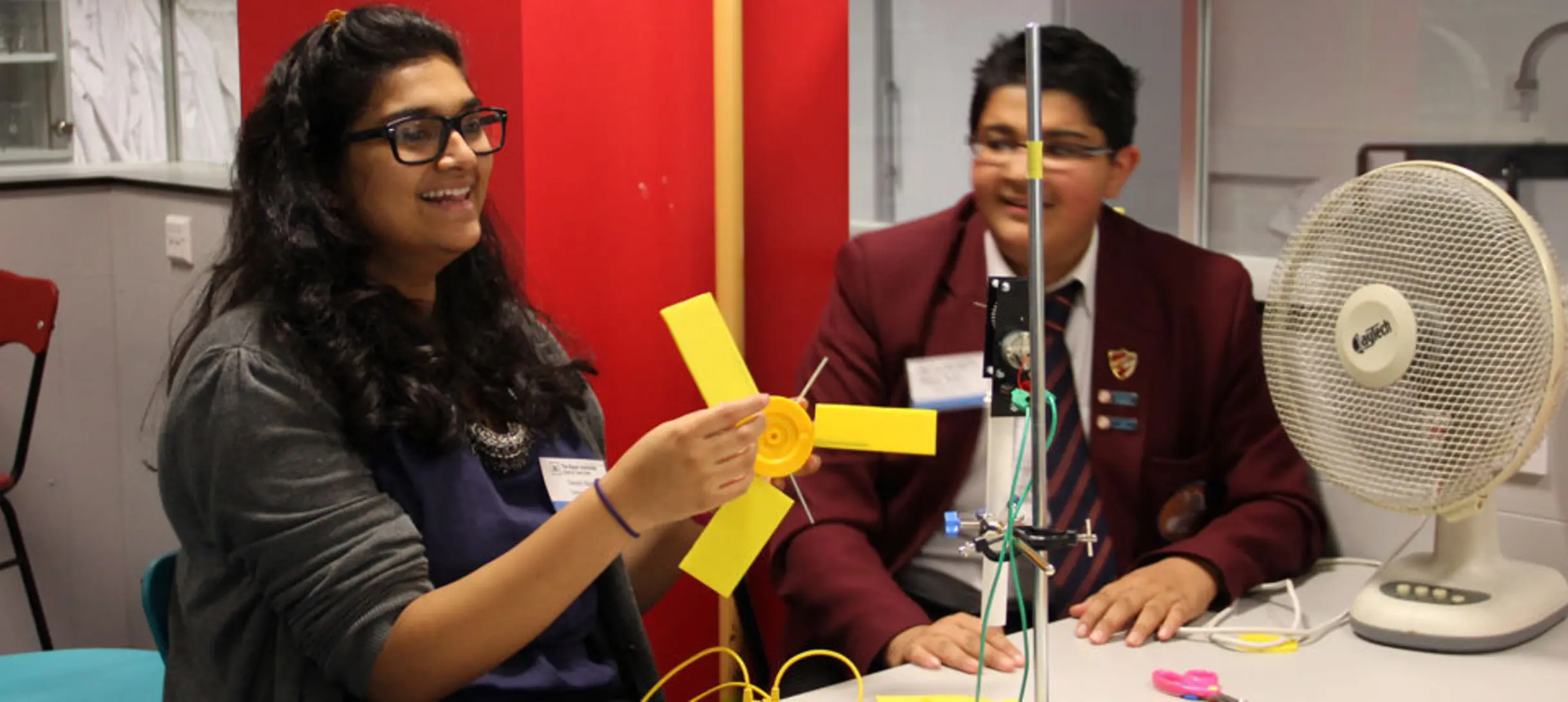The new YSC will also build on some of UCLan’s recent public engagement work from the Lancashire Science Festival and its recent participation in Stargazing Live to promote STEM subjects across the region.
The facility will open in October 2014 but UClan will run a number pilot workshops during the summer with local primary and secondary schools. Some of the young people who will take part in the pilots have already been involved in a series of interviews to shape what activity at the centre will include.
UCLan has heavily invested in the centre already and the Ri has provided ongoing expertise to help develop the YSC and workshops. Core funding to establish the YSC will come via the Higher Education Innovation Fund, which supports universities to promote their work in the wider community and to people outside of higher education.
For more information, please email media@ri.ac.uk.
About UCLan
The University of Central Lancashire (UCLan) was founded in 1828 as the Institution for the Diffusion of Knowledge. Since those early days it has grown into one of the UK’s largest universities with a staff and student community approaching 38,000 and an employment-focused course portfolio containing over 350 undergraduate programmes and nearly 250 postgraduate courses. The University has an established research reputation with world-leading or internationally excellent work taking place within the areas of business, health, humanities and science.
As a truly global institution with a new campus in Cyprus, UCLan’s student body includes 120 nationalities and its partnership network extends to 125 countries. In 2013 the Quacquarelli Symonds World University Rankings awarded UCLan the full five stars for its global outlook in all aspects of international educational provision.
The University has a strong focus on continually improving the student experience and has invested nearly £100 million in the last five years on new buildings and facilities to support teaching, learning and leisure activities.
News
Young people in the North West of England can look forward to exploring hands-on science and technology in a ground-breaking new facility, thanks to a partnership between the Ri and the University of Central Lancashire (UClan).
The two organisations are collaborating to establish a Young Scientist Centre (YSC) – the first of its kind outside of London - at UCLan’s Preston campus. Based on the existing L’Oréal Young Scientist Centre (LYSC) at the Ri and developed with the expertise of the Ri team, the Preston version will also aim to get local young people exploring all aspects of science and technology outside of the classroom.
The YSC will offer a unique experience within the region, benefiting primary, secondary schools and local community groups. The team aims to engage with 3,000 young people in its first year.
Dr Gail Cardew, Director of Science and Education at the Ri said: “For more than 215 years the Ri’s mission has been to encourage people to think more deeply about the wonders and applications of science, and our new partnership with the UCLan will play a key role in helping us achieve this mission in 2014 and beyond.
"We developed the L’Oréal Young Scientist Centre and its imaginative experimental workshops covering topics as diverse as forensics, vehicle crash-testing, colour chemistry and electromagnetism, because we want all children and young people, wherever they live and whatever their background, to realise how much fun and how rewarding science can be. We also want them to understand how vital it is to our everyday lives."
Dr Jo Heaton-Marriott, Public Engagement Manager, from UCLan said: “Every year there is a shortfall of 40,000 STEM graduates in the UK. At some point in their education, increasing numbers of students seem to be ‘turned off’ by STEM subjects. But as anyone who has ever worked in scientific or engineering careers can testify, there are few disciplines as continually rewarding as the sciences – and certainly none as vital to the continuing international competitiveness of the UK.
“At UCLan we are very focused on getting students excited about how science works, and how we can then use it to change lives. That supports the entire ethos underpinning the YSC – the earlier we can get young people engaged in the vast potential of studying STEM subjects, and the sooner they get excited by giving experiments a go, the better for all of us. Therefore the role of the YSC is to promote interest, learning and creativity in core subjects, through imaginative and enjoyable experiences.”
